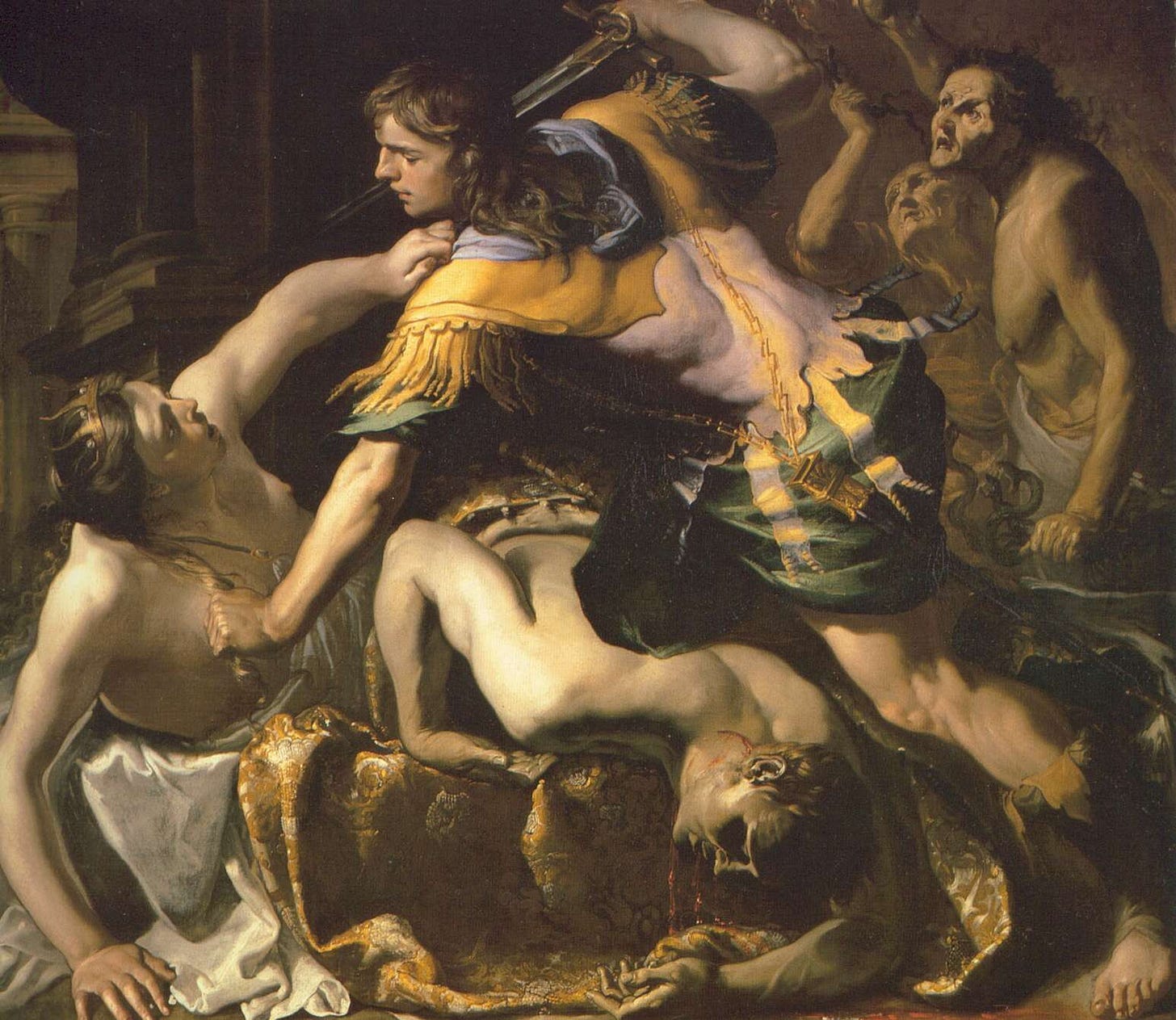Oresteia 3.5: the motive of Orestes for killing Clytemnestra
Summary 13 # Man, God, and Society in Western Literature - From Gods to God and Back
So far, we see a chain reaction of feelings of vengeance (various Furies). It begins with Clytemnestra, who acts on behalf of the Furies associated with the death of her daughter Iphigenia. In response, she avenges her daughter by killing Agamemnon.
Next, the Furies that arise from Agamemnon's death appear to Orestes, demanding that he avenge the death of his father.
In this way, the culture has fallen into an endless cycle of violence. However, in the second tragedy, ‘The Libation Bearers,’ the question arises whether Orestes will kill his mother in the name of the Furies or in the name of the Olympian gods, thus breaking the cycle of blood vengeance.
This raises two questions: which gods will he choose? And secondly, will this choice be effective?
In the European Enlightenment, the tension between emotions and rationality will re-emerge. The Enlightenment thesis, as most purely expressed in the duty ethics of Immanuel Kant, is an action based on reason. A heretic to this idea was the Enlightenment philosopher David Hume, who wrote in A Treatise of Human Nature about what ought and what is. "What ought" refers to how ethics should be—based on rationality, as Kant believed—while "what is" represents the reality that reason is ultimately a slave to emotions.
The chorus wavers in the advice they give Orestes as motivation for the planned murder of his mother. At times, they call for bloody revenge; at other times, they urge cold detachment, from which Orestes can end his mother’s life calmly. Either way, it is a terrible act that Orestes must commit to kill his mother.
On one hand, he needs the furious rage and the blood of his father to enable him; on the other, he must be cool-headed enough to perform the deed with a tempered mind. To kill her in the name of law and justice.
Yet, the motivation of the Furies is still necessary. The distant, tempered, rational approach of the Olympian gods—particularly Apollo, the god of distance—is not a motivating force to spur action. Exactly as Hume argues, the Kantian ‘Achtung’ (respect) for the moral law within us is not enough motivation to take action.
Thus, the chorus invokes feelings of revenge until Orestes is capable of killing his mother, and then they temper themselves.
But when Orestes stands before his mother, he hesitates as his mother says:
"Stop, my boy. Spare this breast, my child, where you so often, dozing, with your toothless little mouth sucked the nourishing milk."
Orestes then turns to Pylades, who has been with him throughout the play. He asks him:
"Pylades, what should I do? Spare my mother and not kill her?" To which Pylades responds: "What then of Apollo's oracles from Delphi and the oaths of loyalty? Remember: better to have everyone as an enemy than a god."
With this, Pylades reminds him that the death must occur in the name of Apollo, not in the name of the Furies.





